My 80 year old mom had hip replacement surgery a Liberty. Liberty was great, they had to move her for rehab and it was decided that Cameron, Mo would be the place. We were told that when she left rehab at Cameron, she would have a walker. We asked about it because she wou ...
About Cameron Regional Medical Center – Behavioral Health
Cameron Regional Medical Center is a medical facility that provides both medical and behavioral health care to people located not just in Cameron but within the greater Northwest Missouri region. This includes offering care to individuals in nearby rural communities and also providing special care to adults and seniors, as well as crisis interventions.
Cameron is home to several therapeutic relaxation spaces, which can be a complement to recovery from substance use disorder (SUD). You can visit Cameron Veterans’ Memorial Golf Club and the nearby municipal pool, which are both great for outdoor excursions. Wallace State Park is another great location that’s ideal for people in outpatient therapy to visit.
Support for Acute Care for Voluntary and Involuntary Patients
While there isn’t a long term behavioral health care unit here, you can receive care if you’re currently in crisis, either because of addiction or an existing mental health condition. In particular, SUD treatment is managed under a dual diagnosis format, ensuring that you’re able to receive the assistance you need including psychiatric medication management if necessary.
Inpatient treatment is offered for people in crisis, which is inclusive of addiction. You can access care voluntarily, although some involuntary admissions are also accepted. Additionally, people accessing medical care at CRMC may also receive a behavioral health consultation if it’s deemed necessary.
A Transitional Solution
Crisis stabilization is the priority at CRMC, which is why your case manager will work with you to help you connect with community resources, which can also include transitioning to a more traditional outpatient program.
CRMC accepts commercial insurance as well as Medicaid and Medicare, and most managed plans. Financial assistance is also an option for people with demonstrated need.
Facility Overview
Latest Reviews
Rehab Score
Gallery
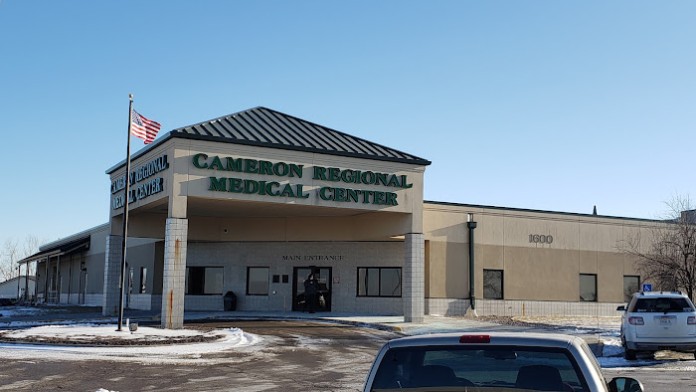
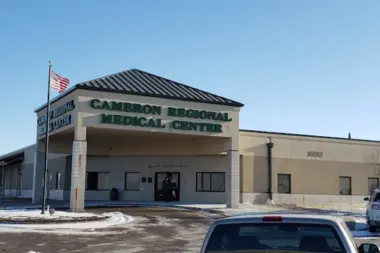
Accepted Insurance
Other Forms of Payment
Medicaid is a state based program that helps lower-income individuals and families pay for healthcare. Medicaid covers addiction treatment so those enrolled can use their coverage to pay for rehab. When a program accepts Medicaid the client often pays very little or nothing out of their own pocket.
Private insurance refers to any kind of healthcare coverage that isn't from the state or federal government. This includes individual and family plans offered by an employer or purchased from the Insurance Marketplace. Every plan will have different requirements and out of pocket costs so be sure to get the full details before you start treatment.
Self-pay involves paying for treatment out of your own pocket. You can use savings or credit, get a personal loan, or receive help from family and friends to fund your treatment. If you don't have insurance or your insurance plan doesn't cover a specific program, self-pay can help ensure you still get the care you need.
Medicare is a federal program that provides health insurance for those 65 and older. It also serves people under 65 with chronic and disabling health challenges. To use Medicare for addiction treatment you need to find a program that accepts Medicare and is in network with your plan. Out of pocket costs and preauthorization requirements vary, so always check with your provider.
Military members, veterans, and eligible dependents have access to specific insurance programs that help them get the care they need. TRICARE and VA insurance can help you access low cost or no cost addiction and mental health treatment. Programs that accept military insurance often have targeted treatment focused on the unique challenges military members, veterans, and their families face.
Addiction Treatments
Levels of Care
Residential treatment programs are those that offer housing and meals in addition to substance abuse treatment. Rehab facilities that offer residential treatment allow patients to focus solely on recovery, in an environment totally separate from their lives. Some rehab centers specialize in short-term residential treatment (a few days to a week or two), while others solely provide treatment on a long-term basis (several weeks to months). Some offer both, and tailor treatment to the patient's individual requirements.
Treatments
Mental health rehabs focus on helping individuals recover from mental illnesses like bipolar disorder, clinical depression, anxiety disorders, schizophrenia, and more. Mental health professionals at these facilities are trained to understand and treat mental health issues, both in individual and group settings.
Programs
Adult rehab programs include therapies tailored to each client's specific needs, goals, and recovery progress. They are tailored to the specific challenges adult clients may face, including family and work pressures and commitments. From inpatient and residential treatment to various levels of outpatient services, there are many options available. Some facilities also help adults work through co-occurring conditions, like anxiety, that can accompany addiction.
Clinical Services
Cognitive Behavioral Therapy (CBT) is a therapy modality that focuses on the relationship between one's thoughts, feelings, and behaviors. It is used to establish and allow for healthy responses to thoughts and feelings (instead of unhealthy responses, like using drugs or alcohol). CBT has been proven effective for recovering addicts of all kinds, and is used to strengthen a patient's own self-awareness and ability to self-regulate. CBT allows individuals to monitor their own emotional state, become more adept at communicating with others, and manage stress without needing to engage in substance abuse.
Dialectical Behavior Therapy (DBT) is a modified form of Cognitive Behavioral Therapy (CBT), a treatment designed to help people understand and ultimately affect the relationship between their thoughts, feelings, and behaviors. DBT is often used for individuals who struggle with self-harm behaviors, such as self-mutilation (cutting) and suicidal thoughts, urges, or attempts. It has been proven clinically effective for those who struggle with out-of-control emotions and mental health illnesses like Borderline Personality Disorder.
Experiential therapy is a form of therapy in which clients are encouraged to surface and work through subconscious issues by engaging in real-time experiences. Experiential therapy departs from traditional talk therapy by involving the body, and having clients engage in activities, movements, and physical and emotional expression. This can involve role-play or using props (which can include other people). Experiential therapy can help people process trauma, memories, and emotion quickly, deeply, and in a lasting fashion, leading to substantial and impactful healing.
Group therapy is any therapeutic work that happens in a group (not one-on-one). There are a number of different group therapy modalities, including support groups, experiential therapy, psycho-education, and more. Group therapy involves treatment as well as processing interaction between group members.
In individual therapy, a patient meets one-on-one with a trained psychologist or counselor. Therapy is a pivotal part of effective substance abuse treatment, as it often covers root causes of addiction, including challenges faced by the patient in their social, family, and work/school life.
Nicotine Replacement Therapy (NRT) is a way of getting nicotine into the bloodstream without smoking. It uses products that supply low doses of nicotine to help people stop smoking. The goal of therapy is to cut down on cravings for nicotine and ease the symptoms of nicotine withdrawal.
Nutrition therapy, aka medical nutrition therapy (MNT), is a way of treating physical, emotional, and medical conditions through diet. Specific dietary plans are designed by professional nutritionists or registered dietitians, and patients follow them in order to positively affect their physical and mental health.
Staff
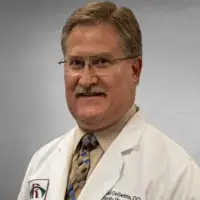
Kendall DeSelms, DO
Chief of Staff
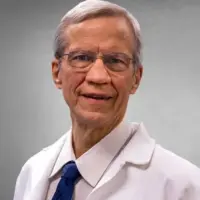
Fred Kiehl, DO, FACOFP
Medical Director for Emergency Room
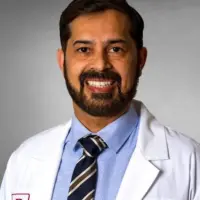
Shahzad Shafique, MD
Medical Director for Two Renal Dialysis Unit
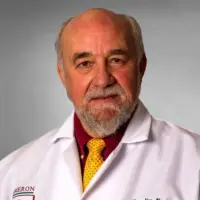
James Neely, DO
Medical Director for Long-Term Care
Contact Information
1600 East Evergreen street
Cameron, MO 64429
